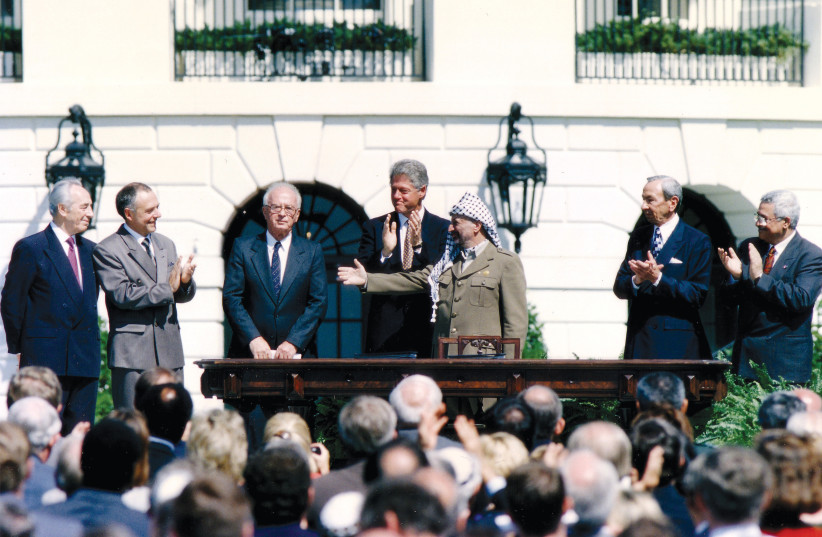President Joe Biden spoke to the graduates of Morehouse College on Sunday, invoking visions of a brighter future for our region, where two peoples might find peace. “I’m working to make sure we finally get a two-state solution, the only solution for two people,” he declared. Yet, this noble pursuit faces a landscape increasingly resistant to such dreams.
In the aftermath of the harrowing October 7 attack by Hamas, which claimed the lives of 1,200 people and saw 253 taken hostage, the Israeli public’s appetite for a two-state solution has waned significantly. Recent surveys reflect a dramatic shift: a poll by the Israel Democracy Institute after October 7 found that only 14% of right-wing Israelis now believe a peaceful coexistence between Israel and a Palestinian state is possible. This skepticism permeates the broader society, with only 35% of the general population expressing optimism about such a future.
The brutal reality of violence has overshadowed hopes for peace, transforming public opinion and solidifying the perception that territorial concessions equate to security risks. Historical experiences, such as the 2005 Gaza disengagement, have left deep scars, reinforcing fears that a Palestinian state could become a launchpad for more attacks. This sentiment is echoed across political lines, with many Knesset members, especially from right-wing and religious factions, opposing the two-state framework.
Despite international pressure to revive the two-state solution, including from the Biden administration, Israeli leaders and a significant portion of the public remain unconvinced. They prioritize immediate security needs over long-term diplomatic solutions that seem increasingly impractical under current conditions.
Hope for two-states eroding among the Israeli public
The concept of a two-state solution is not new; it has been a cornerstone of peace efforts for decades, espoused by numerous US presidents from Bill Clinton to George W. Bush, Barack Obama, and Donald Trump. Yet, the persistent violence and lack of trust have repeatedly undermined these efforts. The latest poll by the Israel Democracy Institute highlights that while 62% of Israelis support the idea of “two states for two peoples,” the confidence in achieving this has eroded.

October 7 was a stark reminder of the volatility in the region. For many Israelis, the attack reinforced the notion that any future Palestinian state must come with robust security guarantees. The historical precedents are sobering: the Second Intifada, the withdrawal from Gaza, and the subsequent rise of Hamas have all contributed to a deep-seated wariness about making further concessions.
Moreover, the political landscape in Israel has shifted significantly to the right and Prime Minister Benjamin Netanyahu’s government includes several coalition partners who are staunchly opposed to a Palestinian state. This reality makes it increasingly difficult for any government to pursue a path leading to such a Palestinian state.
Despite these challenges, there are voices in Israel that continue to advocate a two-state solution. Former prime minister Ehud Olmert and security experts like Yaakov Peri argue that while the current sentiment is against it, leadership and decisive action could shift public opinion. They draw parallels to historical peace agreements, such as the Egypt-Israel peace treaty, which initially faced significant skepticism but has endured for decades.
In a notable development in February, the Knesset voted overwhelmingly against the unilateral recognition of a Palestinian state. Netanyahu hailed the vote as a clear message to the world that unilateral actions would only endanger Israel and obstruct peace efforts. It underscored the prevailing sentiment in Israel that any move towards a Palestinian state must be carefully negotiated and secured.
The Biden administration, along with the European Union and other actors, continues to push for the revival of the two-state solution. However, this must come with an understanding of the current Israeli psyche.
The fear of repeating mistakes where territorial concessions brought increased violence, looms large. For any new diplomatic efforts to succeed, they must confront these fears head-on. Proposals must include robust mechanisms to ensure demilitarization and political stability. Only then can Israel’s public begin to entertain such ideas.
While Biden’s commitment to a two-state solution resonates with long-standing US policy and ideals, it clashes with the harsh realities and prevailing sentiments. So without concrete assurances of security and stability, the two-state solution remains a distant and unattainable goal for most Israelis.
